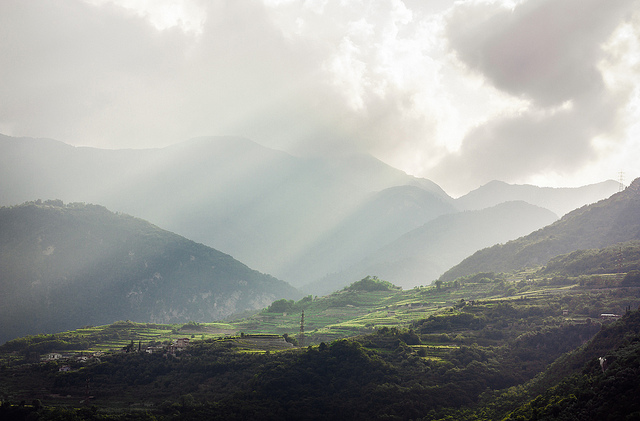
02 Dec UPDATED CFP: Transitional Female Being: An Ecocritical Politics of Peri/Post/Menopause
PLEASE NOTE: CFP extended to December 18, 2022.
[Call below was originally published 21 October 2022, updated with new due date on 3 December 2022]Chapter proposals are invited for the edited collection Transitional Female Being: An Ecocritical Politics of Peri/Post/Menopause, due by November 30, 2022.
This volume aims to make a significant contribution to communicating beyond the biological elements of menstruation and pregnancy, interests which determines the direction of much ecofeminist theory, toward seriously engaging with a fundamental discourse effectively silenced in ecofeminist thinking: Menopause.
Interested authors should submit a 300-word abstract, 200-word biography, and sample of a previously published chapter or article to the CloudStor folder at https://cloudstor.aarnet.edu.au/plus/s/JCKbu5VayGI20Ch by November 30, 2022.
Abstracts and biographies should be submitted as Word documents, and previously published chapters or articles should be submitted as PDFs. Both Word files and PDFs should contain the author’s name in the file names. Please include your email address in your biography file.
Authors will be notified whether their proposals are accepted by December 15, 2022. First drafts of full chapters (up to 5,000 words) are due by February 5, 2023, and final versions are due April 1, 2023. All authors must have already completed their doctorates. In your 200-word biography, please note the year and university where you earned your doctorate as well as your current university affiliation. Only previously unpublished works will be considered.
We seek a broadly diverse and international group of scholarly contributors.
A brief survey of ecocritical and ecofeminist literature reveals that peri/post/menopause is, and remains, clearly the most neglected phase of the menstrual cycle, both within the disciplinary fields of ecofeminism and ecocriticism, and comparatively in the literary works of poets, novelists, and short story writers. In responding to this dearth in the literature, this edited collection will bring together cross-sectional ecofeminist voices casting new light on women’s peri/post/menopausal positionality within literary works.
Transitional Female Being: An Ecocritical Politics of Peri/Post/Menopause aims to develop a critical discourse that explores and locates literary representations of peri/post/menopause within their social contexts to capture both common links between the literary representations of female being in transition (including conventional paradigms), as well as the absences, in order to identify the critical gaps in the monolithic discourse about peri/post/menopause.
Especially welcome are proposals which offer ecocritical literary readings; which affirm rites and interpretations for this life transition; bring into view fresh paradigms inspiring the agedness of femininity; and challenge relations of power in women’s navigation of the peri/post/menopausal passage as not an end of womanhood, but another openly transitional beginning. We encourage contributors to explore the possibilities of changing the conversation, effectively proposing what Louann Brizendine (2022) characterizes as “a new vocabulary for menopause and perimenopause, so that we don’t have to rely on the M-word and the P-word, which literally refer to the end of fertility.” The volume also seeks to redefine the somewhat static view of peri/post/menopause toward a dynamism of female being. To quote Janine O’Leary Cobb (quoted in Seaman and Eldridge 2012, 345), “Menopause can be an interval, a closure, a threshold, a gateway …. All of these things and more.”
Alongside Medieval, Renaissance, Shakespearean, Enlightenment, Colonial, Romantic, Realist and/or Modernist, Postmodernist, etc., literary works, the volume invites chapters around other titled possibilities such as:
- Robert James Waller’s The Bridges of Madison County (1992)
- Marie Darrieussecq’s Pig Tales: A Novel of Lust and Transformation (1996)
- Ananda Devi’s Indian Tango (2011)
- Lucy Kate King’s Mrs Bennet’s Menopause (2013)
- Melinda Rucker Hayes’ BITTEN: Confessions of a Menopausal Vampire (2019)
- Mary Maloney and Ed Markel’s The Menopause Murders (2019) – the heroine of Debbi Dickerson
- Pamela Skjolsvik’s Forever 51 (2020)
- Heather Wardell’s The Menopause Support Group (2020)
- Dana Spiotta’s Wayward (2021)
The volume will also encourage theorizing peri/post/menopause and childlessness. Productive points of inquiry might include literary representations of the goddesses of:
- Egyptian mythology: Nephthys
- Roman mythology: Bona Dea, Diana, Minerva, Vesa
- Grecian mythology – Artemis, Athena, Hestia, Isis, Nike
- Vietnam – Bà Tổ cô (The Family Goddess)
- Hinduism – Kali, Lakshmi, Sarasvati
- African mythology – Uhamiri
- Norse mythology – Gefjon
- Germanic mythology – Fulla (or Volla)
- Meitei mythology – Ngaleima
- Native American folklore – Spider Old-Woman
Proposals are invited on other topics not listed above, but proposals should avoid the topics listed below, for which we already have confirmed contributors:
* “Ecofeminism and the Wife of Bath’s Loathly Lady,” Lesley Kordecki, PhD. Professor Emeritus, University of Toronto
* “Ecofeminism to Ecohumanism: An Exploration of Hindu Goddesses,” Sangita Patil, PhD, Assistant Professor, LBS Govt First Grade College, Bengaluru, India
* “From Becoming to Being: The Material-semiotic Abhumanity of Peri-to-post-menopausal Women in the Victorian Gothic,” Nicole Dittmer, PhD, Adjunct Professor, The College of New Jersey in Ewing, New Jersey
* “Witches and Wise Crones: Ecofeminist Adventures in Gyn/Ecology and the Grimmian Tales,” Nicole Anae, PhD, Senior Lecturer, CQUniversity
* “From Brushing Cats to Olive Kitteridge: An Ecocritical Approach to Older Women in Selected Literature,” Benay Blend, PhD, Independent Scholar
* “‘I feel in the middle, a third gender’: The Menopause and the Undoing of Gender in Recent Menopause Memoirs,” Veronkia Schuchter, PhD, Visiting Fellow, University of London
* “Ann Cleeves’s Vera Stanhope: Pursuing Truth and Protecting Birds,” Casey Cothran, PhD, Professor of English, Winthrop University
* “An Exploration of Post-Menopausal Female Bodies in Chinese Novels,” Amy Kit Sze Chan, PhD, Associate Vice-President (Quality Assurance) at Caritas Institute of Higher Education, Hong Kong
* “Perimenopause and Behavioural Changes in Nuns: A Study of Select American Plays/Films,” Soumya Jose, PhD, Assistant Professor and Head, School of Humanities and Management Sciences, NIT Andhra Pradesh
* “Ecofeminism and The Change by Kirsten Miller,” Nadia Mead, PhD, Lecturer, CQUniversity
* “Absences and Solitude: Representation of Older Women and their Ecosystem within Select Works by Indian Women Novelists,” Swapna Gopinath, PhD, Associate Professor, Symbiosis Institute Of Media And Communication, Pune
Nicole Anae, the coeditor of Indian Feminist Ecocriticism (2022) and The Routledge Handbook of Trans Literature (2023), holds the position as Senior Lecturer in Literary and Cultural Studies at Central Queensland University and is the Head of Course for the Master of Creative Writing degree. She publishes regularly on literary and ecofeminist theory and practice and her work appears in a variety of edited collections including, but not limited to, The Routledge Handbook of Ecofeminism and Literature (2022), Dystopias and Utopias on Earth and Beyond: Feminist Ecocriticism of Science Fiction (2021), and Transecology: Transgender Perspectives on Environment and Nature (2020), edited by Douglas A. Vakoch, Literature and Ecofeminism: Intersectional and International Voices (2018) edited by Douglas A. Vakoch and Sam Mickey, and The Ecopolitics of Consumption: The Food Trade (Ecocritical Theory and Practice) edited by H. Louise Davis and Karyn Pilgrim (2015).
Contact Info: Nicole Anae, Ph.D. Central Queensland University
Contact Email: dr.nicoleanae@yahoo.com.au



Sorry, the comment form is closed at this time.